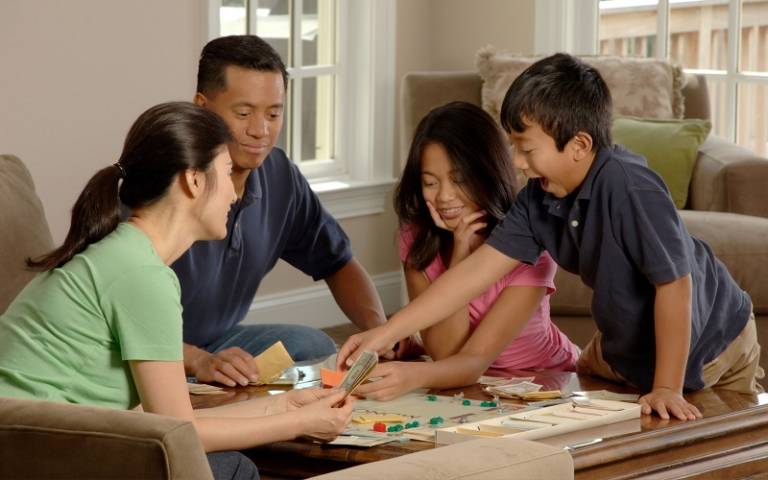IOE academics publish book exploring the international perspectives of families during the pandemic
6 October 2023
Professor Katherine Twamley and Drs Humera Iqbal and Charlotte Faircloth have edited Family Life in the Time of COVID, which looks at how international and local policies shaped family life during various lockdowns.

The book is a collection of case studies from ten countries and analyses the ways responses to the pandemic shaped and were shaped by understandings of family life.
It aimed to reveal the everyday joys and struggles of families in a time of uncertainty; to portray diverse experiences of global social disruption; and how these lives are shaped both by policies and the sociocultural practices of families.
Dr Iqbal says, ‘It was clear in early 2020 that we were dealing with something very unknown. There were mixed messages in the news and a great deal of uncertainty across the globe. As social scientists working on families and young people, we felt it was important to capture this moment and not just from the perspective of the UK.’
‘We wanted to know the impact of this pandemic on everyday life in different households, across generations and across borders, and learn how people adapted and coped.’
The research began as a way to look at the pandemic through a more global lens. An international team began their work during the first year of the pandemic using longitudinal investigations. They particularly observed how the pandemic impacted familial relationships across diverse contexts and cultures. Some of these factors included the impact of lockdown laws; worry and apprehension around COVID; finances and food security; and the transition to online learning.
Professor Twamley says, ‘Working with international colleagues based in ten different countries has been incredibly rewarding. I have learned so much from the people we have been collaborating with, as well as about the respective contexts in which we have been doing research.’
‘Fundamentally, the project highlights how local political, economic and cultural particularities shape how families experience social crisis, and the importance of attending to different needs and constraints, even when so many desires (around family, health, togetherness) are shared by individuals across the world.’
The book documents the lived experiences of families during an unprecedented time, and so serves as an important empirical, historical record. Not only does it demonstrate the global nature of the pandemic, but it also contextualises the impacts of the COVID pandemic on families in different countries and situations.
Dr Faircloth says, ‘When Covid-19 first hit, my first reaction was definitely not to set up a research project investigating how it was impacting other families with children around the world. But how glad I am that Katherine had the foresight to develop such an undertaking, and what a pleasure it was to work with her and Humera on bringing this project to fruition.’
‘Our in-depth qualitative methodology allowed us to capture both the similarities and the differences in families’ experiences across the respective countries, and in such a way that we “humanised” some of the (increasingly alarming) statistics that were emerging. In these final chapters, we see rich, complex portraits that are testament to the resilience – as well as endurance – of family life in a time of crisis.’
An in-person book launch will take place on 17 October at the Institute of Advanced Studies, with an online launch to follow on 1 November.
Related links
- Family Life in the Time of COVID
- Professor Katherine Twamley’s research profile
- Dr Humera Iqbal’s research profile
- Dr Charlotte Faircloth’s research profile
- UCL Social Research Institute
Image
Bill Branson for the National Cancer Institute via Unsplash.
 Close
Close

